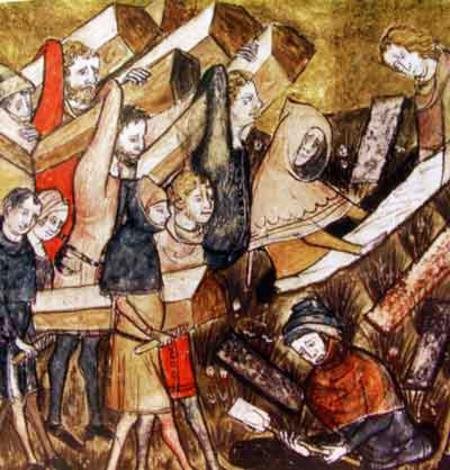
In these bleack times that we live in (although they have always existed, as shown by the fact that the expression was used by the German poet Hördelin in the 19th century), literature and philosophy are obligatory references. Certain authors and works are reactivated in our conscience, in our interest, by certain circumstances, more if these touch a great conglomerate, as it is the case of this pandemic.
This is why I am updating my interest in one of my favourite authors, Albert Camus (Algeria, 1913 - France, 1960), French novelist, playwright and philosopher, associated with Existentialism.
The work by Camus that has returned to my reading consciousness in these circumstances of the pandemic is The Plague (The Foreigner may also be relevant), written in 1947. His argument is very basic: a doctor (Rieux), faced with an epidemic of plague that is raging in the Algerian city of Oran, finds himself with others and likewise in solidarity in the face of pain, loneliness, loss, exile, death and a resumed life. Narrated by one of its protagonists, it is marked by outstanding dialogues between the characters, who include two other doctors, a traveller, a journalist, a priest and a smuggler. Based on the situations experienced, it reveals a profound philosophical and moral content, which extends to any temporal and geographical circumstance, where suffering, restriction of freedom and death predominate. It is not by chance that it is considered the main novel written in France after the Second World War, and one of the essential post-war novels.
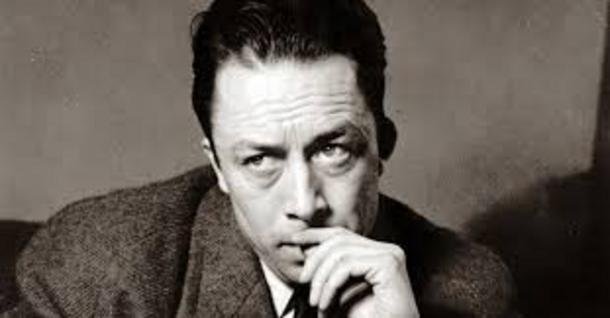
The plague is Camus' great metaphor for addressing such central themes as the meaning of life or the absurdity of life, individual responsibility, belief in God, and solidarity, among the most prominent. Moreover, this novel, like all his work, is made from a sharp verbal discourse, penetrating our emotions and personal consciousness.
I will comment on it from certain quotes that seem to me to be relevant (some might be a little long):
Perhaps the easiest way to get to know a city is to find out how its inhabitants work, love and die.
In its first pages, the author, through its narrator, places us in some central coordinates of the novel, even more, of existence. These are the essential notes for entering a city or town, but perhaps also of its individuals.
In a very few days the number of cases had risen by leaps and bounds, and it became evident to all observers of this strange malady that a real epidemic had set in. This was the state of affairs when Castel, one of Rieux's colleagues and a much older man than he, came to see him.
"Naturally," he said to Rieux, "you know what it is."
"I'm waiting for the result of the post-mortems."
"Well, I know. And I don't need any post-mortems. I was in China for a good part of my career, and I saw some cases in Paris twenty years ago. Only no one dared to call them by their name on that occasion. The usual taboo, of course; the public mustn't be alarmed, that wouldn't do at all. And then, as one of my colleagues said, 'It's unthinkable. Everyone knows it's ceased to appear in western Europe.' Yes, everyone knew that-except the dead men. Come now, Rieux, you know as well as I do what it is."
Rieux pondered. He was looking out of the window of his surgery, at the tall cliff that closed the half-circle of the bay on the far horizon. Though blue, the sky had a dull sheen that was softening as the light declined. "Yes, Castel," he replied. "It's hardly credible. But everything points to its being plague."
Recognition and acceptance of the truth, which is not only for specialists, is vital. But dethroning taboos, false assumptions, manoeuvres and operations driven by subaltern interests. It seems "hardly credible", as Rieux says, that we are going through health situations that humanity should avoid or have overcome (Venezuela is a sad case of the reappearance of diseases that were thought to be controlled for many years).
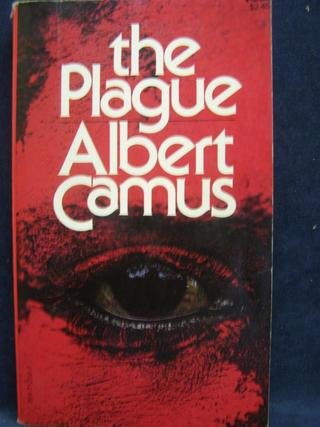
However, many continued to hope that the epidemic would soon be over and that they and their families would be saved. Therefore, they did not feel obliged to make any changes in their habits yet. The plague was for them an unwanted visitor, forced to say goodbye one day as unexpectedly as it had arrived. Alarmed, but far from despairing, they had not yet reached the stage where the plague would seem to them the very fabric of their existence; when they forgot the lives they had hitherto been given to lead.
A central sense of the text, and I would say of the whole novel, is that the plague, that is, the state of emergency, in what it means of suspension of human rights, on the one hand; or of abandonment or forgetfulness of citizens, can become a state of normality.
Doctor Rieux's confessions are extraordinary:
I know nothing, Tarrou, I swear to you I know nothing. When I got into this profession I did it a bit abstractly, in a way, because I needed to (...) And then I had to see what it is to die. Do you know that there are people who refuse to die? Have you heard a woman shouting "Never!" at the moment of death? I do. And I realized right away that I couldn't get used to it. I was very young at the time, and it seemed to me that my disgust reached the very order of the world. Then I became more modest. I just can't get used to seeing people die. I don't know any more. (…)
-Always, I know. But that's no reason to stop fighting.
-No, it's not a reason. But I can imagine, then, what this plague must be like for you.
-Yes, -said Rieux-, an endless defeat.
Tarrou stared at the doctor for a while, then stood up and walked heavily to the door. Rieux followed him. When he was next to him, Tarrou, who was sort of looking at his feet, said:
-Who taught you all that, doctor?
The answer came immediately.
-The misery.
The awareness of suffering and death, so typical of an existentialist vision, springs up here with a pathetic expression. True. But I think the most striking thing is the individual's assumption of vulnerability and vital learning from suffering, or misery, as another version of the final word translates.
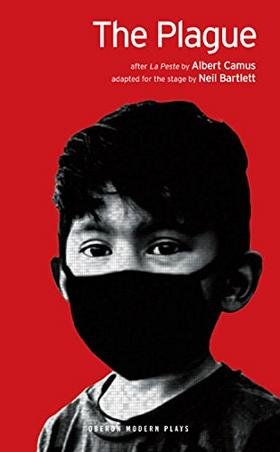
Our fellow citizens had put themselves in the rhythm of the plague, they had adapted, as they say, because there was no other way to do it. They still had the attitude one has in the face of misfortune or suffering, but they were no longer prickly. Dr. Rieux considered this to be a disaster, because the habit of despair is worse than despair itself.
This fragment reinforces a reflection introduced above: the habit, which we could translate as resignation and normalized practice, is one of the main dangers in the face of a social, political, cultural "plague"...
This is how Tarrou spoke to Rieux:
I know for sure (...) that everyone carries the plague in himself, because no one, no one in the world is unscathed by it. And I know that one must watch oneself ceaselessly so as not to be dragged in a minute's distraction to breathe next to someone else's face and to get the infection.
The quotation has been shortened for obvious reasons, but part of it places us in front of a general, abstract concern, where the plague is more than an illness of physical health; that is, as an "evil" that can infect us (irresponsibility, indolence, resignation...?)
All that man can win in the game of plague and life is knowledge and memory. It is possible that this is what Tarrou called winning the game!
One of the final reflections of the narrator-protagonist places us before a double certainty (or perhaps uncertainty): the inexorability of memory. Is knowledge so achievable? I ask this because a few lines later, the novel says: "A heat of life and an image of death: this was knowledge".
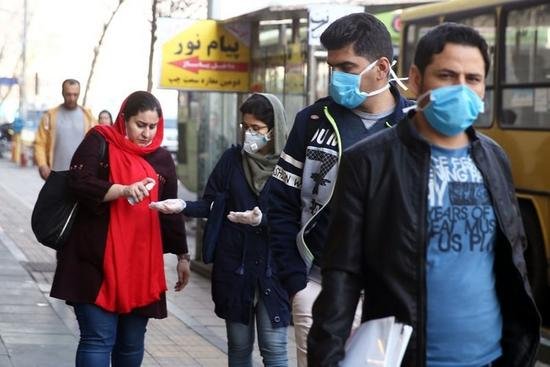
The penultimate paragraph of the novel (once the plague has been overcome in the village) is truly beautiful, moving, and we will allow ourselves to reproduce it in full:
From the dark port came the first rockets of the official celebrations. The town greeted them with a long, deafening exclamation. Cottard, Tarrou, those whom Rieux had loved and lost, all of them, dead or guilty, were forgotten. The old man was right, the men were always the same. But that was their strength and their innocence, and it was in that, above all their pain, that Rieux felt he was joining them. In the midst of the cries that doubled in strength and duration, which echoed to the foot of the terrace, as the multicoloured bouquets rose to the sky, Dr Rieux decided to write the story that ends here, not to be one of those who remain silent, to bear witness to the plague, to leave at least a memory of the injustice and violence that had been done to them, and to simply say something that one learns in the midst of the plagues: that there are more things in men worthy of admiration than of contempt.
(You can access a version of the original novel at * and an English version at **
Bibliographical references:
Camus, Albert (1974). *? The plague. Argentina: Edit Sur.
https://en.wikipedia.org/wiki/Albert_Camus
https://en.wikipedia.org/wiki/The_Plague
Written by @josemalavem
Click the coin below to join our Discord Server
)
Obviously The Plague is a literary work that can come to our mind (if we have read it) in these moments that we live.
Your publication is complete in terms of the quotes you make from Camus' novel. But what I find more valuable are your reflections or comments.
I rescue one of them:
I think that your perception is very acute and that it transmits my anguish (and possibly yours) about what is happening in Venezuela: the normality of the extraordinary.
Really, this is a great post. Thanks @adsactly for making this work visible. Greetings @josemalavem